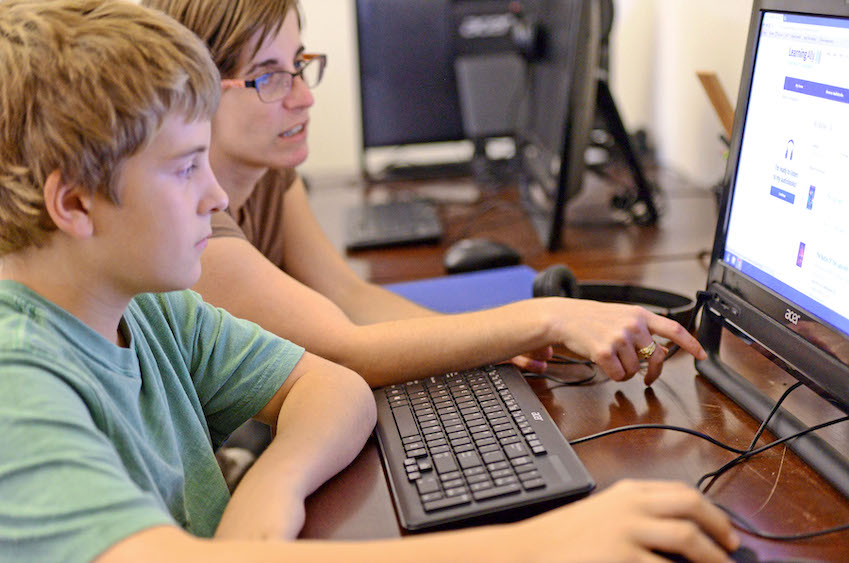Last week, as part of our Lighthouse Educator Workshop Series, we focused on the importance of possessing a growth mindset. Carol Dweck, PhD. has pioneered research on motivation. Through her work, we have learned much about why people succeed and how to foster success. Her research has shown us that, while many people maintain a fixed mindset (the belief that intelligence and talent are determined at birth and maintained throughout life), as educators, we must operate from and convey a growth mindset as we work to maximize learning and foster success for all of our students. Our staff met at our Ojai Learning Center to read and discuss an article on growth mindset from the August 3, 2007 edition of New York Magazine.
After reading the article, we discussed the ways in which the fixed mindset has impacted each of us, or someone that we know, personally. We talked about the children who become fearful and anxious when given corrective feedback. We discussed the fear of taking risks (stemming from a fear of failure) that we see in some of our students, our peers, and even ourselves. Above all, we agreed that it is essential that we posses and convey a growth mindset to our students. Students who posses a growth mindset from the start are more motivated, engaged, and quicker to progress. Those who come to us with a fixed mindset can seem quite the opposite. With these students, it is up to us to convey our confidence and inspire a shift in mindset. How do we do this? We can make a world of difference with what we communicate through our demeanor and language.
One source of language that works to convey a growth mindset can be found in Solution-Focused Therapy. As a therapist-in-training, I found myself quite drawn to the theory and practice of Solution-Focused Therapy. I like that this modality of communication focuses on positive expectations for the future rather than problems of the past. I also appreciate the way that solution-focused language automatically invites clients into a growth mindset. This is why I believe that solution-focused language should become a natural part of our communication with students and families.
This week, we will read and discuss the explanation found on the website of the Institute for Solution-Focused Therapy. As you read, please generate a list of solution-focused questions and phrases that you use, or can imagine yourself using, in a parent meeting, educational team meeting, or educational therapy session, in order to convey and inspire a growth mindset. Some examples are:
- I am so impressed with how much you’re learning!
- What types of books will you read when reading becomes easier for you?
- When do you find that it is easy for you to pay attention in class?
- On a scale of 1 to 10, how would you rate your current school experience? What will make it a 10?



As stated in the intro paragraph, Solution-Focused Therapy is goal-directed. I think this is my favorite part about it. Anything goal directed not only helps us as educators, but it helps the students and their families to understand specifics. I also like how SF therapy is focused on solutions while keeping the student’s visions in mind. It is a way for everyone to work together to achieve success.
This article on SF Therapy directly relates back to our last one on Growth Mindset and our conversation from our meeting last Friday. First, the SF article talks about compliments as one of the methods in SF Therapy. I see how compliments are beneficial to the student and their families, while keeping in mind a growth mindset philosophy. Keeping the compliments goal-directed helps with this. Instead of complimenting a student by saying “You are so smart”, we could say “I’m so impressed with how hard you worked on your math homework, what did you do differently to achieve success?” In our meeting last Friday we also discussed validation and when working with a student, we need to make sure we validate their concerns or emotions. The SF article brings up Coping Questions as a way to help students with overwhelming issues. This is directly related to validation and why we do it. Instead of ignoring the problem, we are recognizing it and asking our client where do we go from here?
Below are some questions I developed after reading the SF Therapy Article:
“What did you do differently while reading to help you understand the material better?”
“What worked for you while doing your math homework?”
“How have you been able to continue working hard without falling behind?”